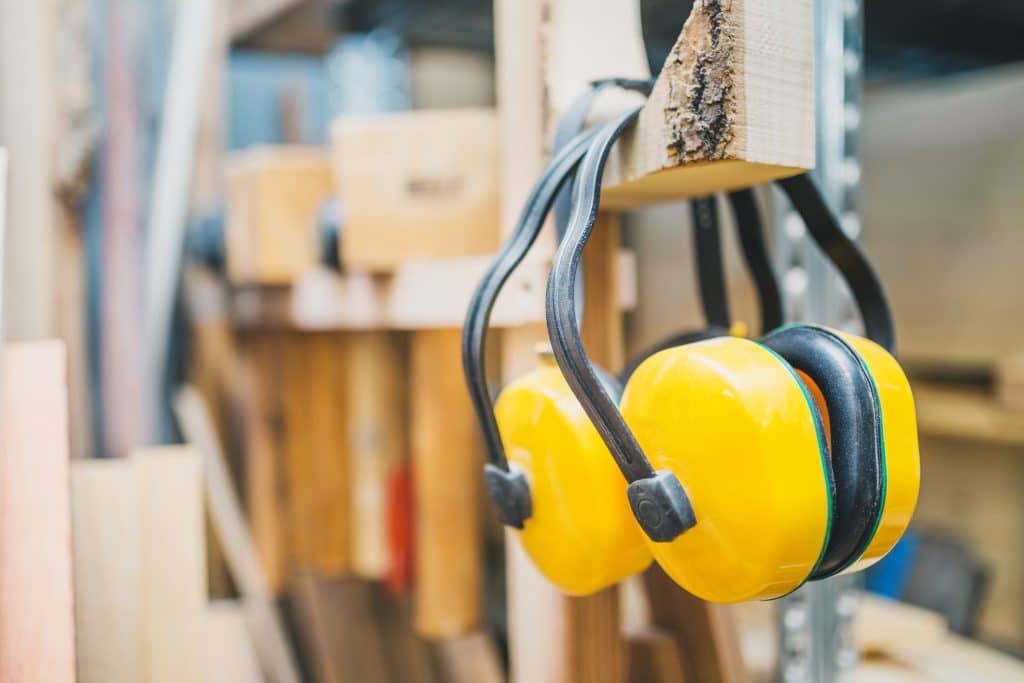
Whether you work on a construction site, in a warehouse, or even in a busy restaurant, workplace noise can take a serious toll on your hearing over time.
Unfortunately, it’s not always easy to spot the signs of damage until it’s too late. If you’re noticing ringing in your ears after your shift, struggling to hear conversations in quiet settings, or feeling drained by constant noise, your job may be putting your hearing at risk.
And here’s the thing — hearing safety is more than just an HR checkbox. It’s about protecting your long-term health and your ability to engage fully in your life, both on and off the clock.
How Loud Is Too Loud?
Noise levels are measured in decibels (dB). According to the World Health Organization, prolonged exposure to sounds at or above 85 dB — about the noise level of a busy street — can start causing damage. Many work environments regularly exceed that threshold. Some tools and machinery can emit noise levels above 100 dB, which may be harmful after just 15 minutes of exposure without protection.
Over time, this exposure can lead to noise-induced hearing loss (NIHL), a condition that is both permanent and irreversible. Unlike other forms of hearing loss, NIHL is 100% preventable when proper protections are in place.
What Are the Signs of Workplace Hearing Damage?
Many people don’t realize their hearing is being affected until the symptoms start to interfere with daily life. Watch for these early signs:
- Ringing or buzzing in the ears (tinnitus)
- Muffled hearing after a noisy shift
- Needing to ask people to repeat themselves
- Trouble hearing high-pitched sounds like alarms or doorbells
- Increased sensitivity or discomfort in noisy environments
If you’re experiencing any of these, it’s time to take action.
How to Advocate for Better Hearing Safety at Work
Not sure where to begin? You don’t have to be a health and safety officer to raise the issue. Here’s how to start the conversation.
1. Document What You Hear (and Feel)
Start tracking the noise levels around you. Note which equipment, areas, or tasks seem especially loud, and keep a log of any symptoms you’re experiencing — headaches, ringing, or even fatigue from constant noise. This information helps you build a case for why change is needed.
2. Know Your Rights
In Canada, employers are required to protect workers from occupational hazards, including excessive noise exposure. This involves providing personal protective equipment (PPE), such as hearing protection, and implementing noise control measures whenever possible. You can refer to the guidelines outlined by organizations such as the Canadian Academy of Audiology or the College of Audiologists and Speech-Language Pathologists of Ontario (CASLPO).
3. Ask for a Noise Assessment
Many workplaces are eligible for environmental testing to measure sound levels. These assessments identify whether employees are being exposed to unsafe volumes and provide recommendations for mitigation — such as rotating tasks, upgrading machinery, or offering better PPE.
4. Lead by Example
Even before official changes are made, you can model good hearing safety habits. Use earplugs or earmuffs rated for your environment, take “quiet breaks” when possible, and encourage co-workers to do the same. Workplace culture shifts often start with small, consistent actions.
Why Regular Hearing Tests Matter
One of the most effective ways to stay on top of your hearing health is by scheduling regular hearing assessments, especially if you work in a noisy environment.
Early detection of hearing changes gives you the chance to make adjustments, protect what you have, and prevent further damage. At Toronto Family Hearing, our experienced audiologists offer comprehensive testing tailored to your lifestyle and exposure risks. We work with individuals across a wide range of professions to monitor and maintain long-term hearing health.
Small Changes, Big Impact
Hearing loss doesn’t happen overnight. But when it does set in, the effects can ripple through every area of life — conversations with loved ones, job performance, even mental health. Advocating for better hearing protection at work isn’t just about reducing noise; it’s about protecting connection, focus, and quality of life.
And while employers have a responsibility to create safer work environments, employees play a key role in raising awareness, speaking up, and making informed choices.
If you’re concerned about the noise levels at your workplace, trust your instincts. Take steps now to protect your hearing, and encourage others to do the same.
Need guidance?
Book a professional hearing assessment with Toronto Family Hearing and get expert advice tailored to your unique work environment. We’re here to help you hear your best — on the job and beyond.